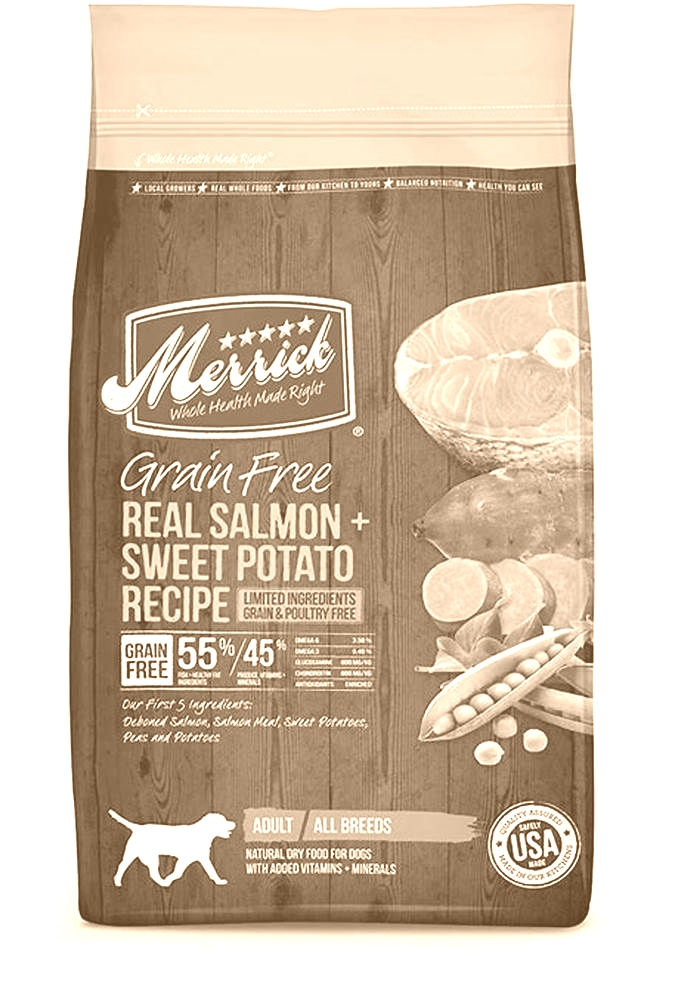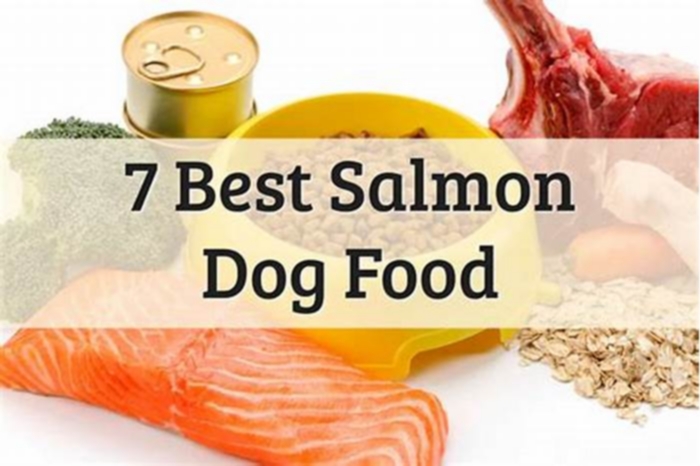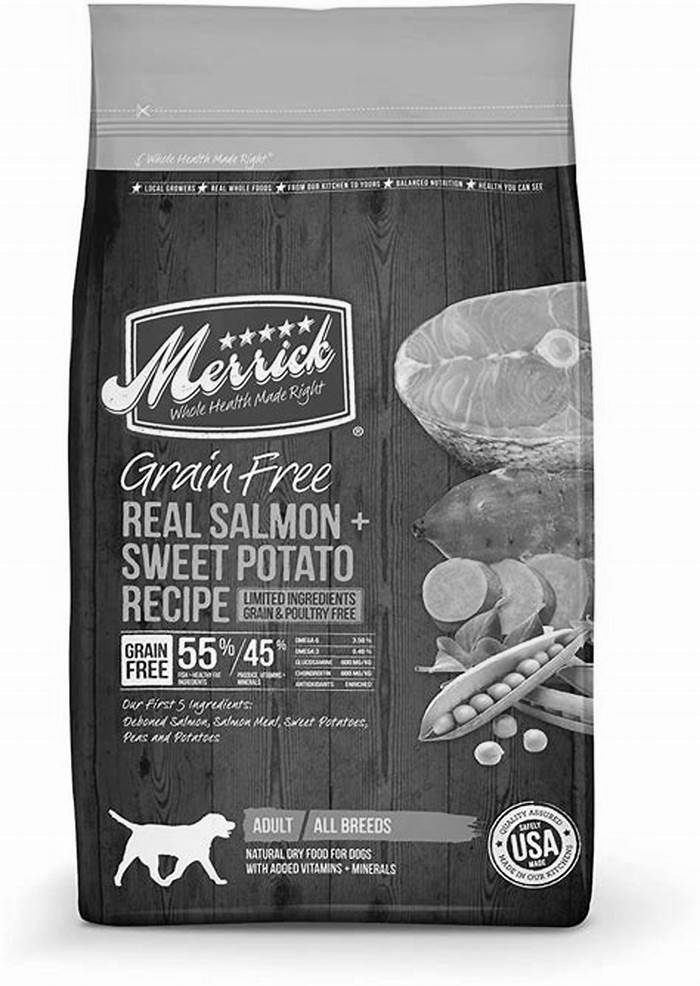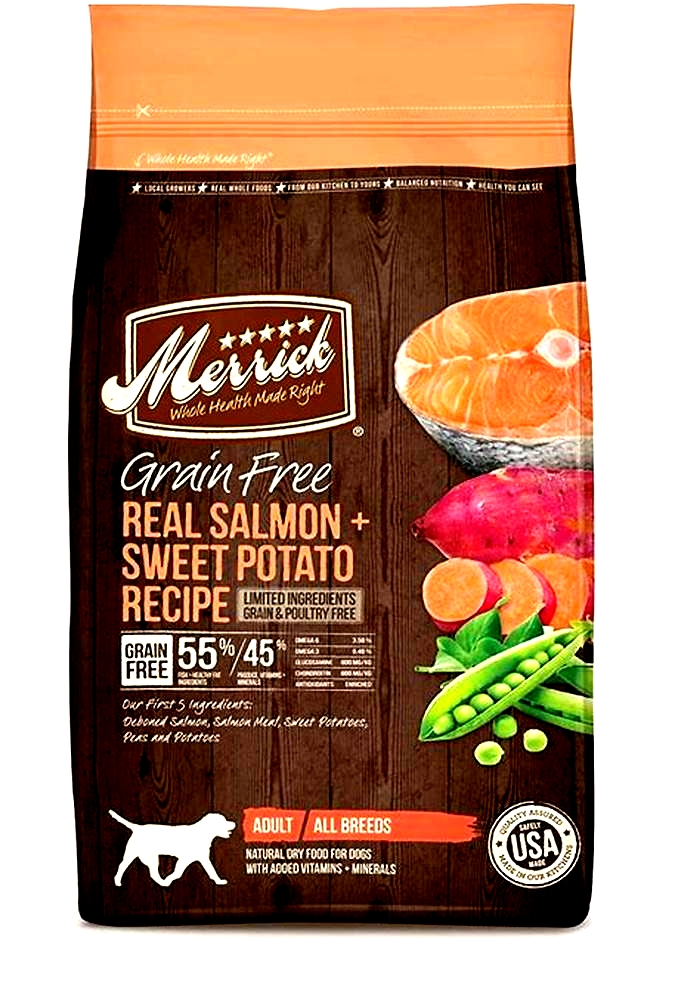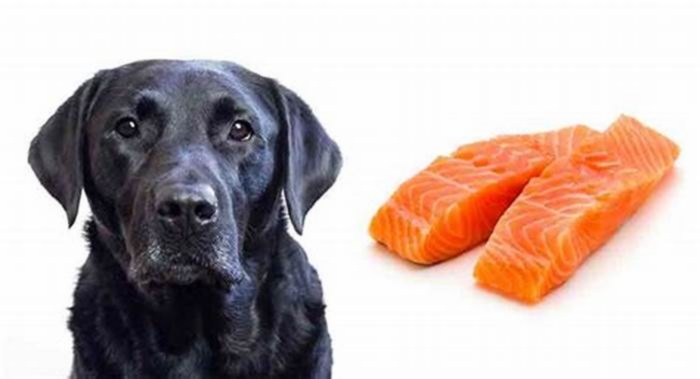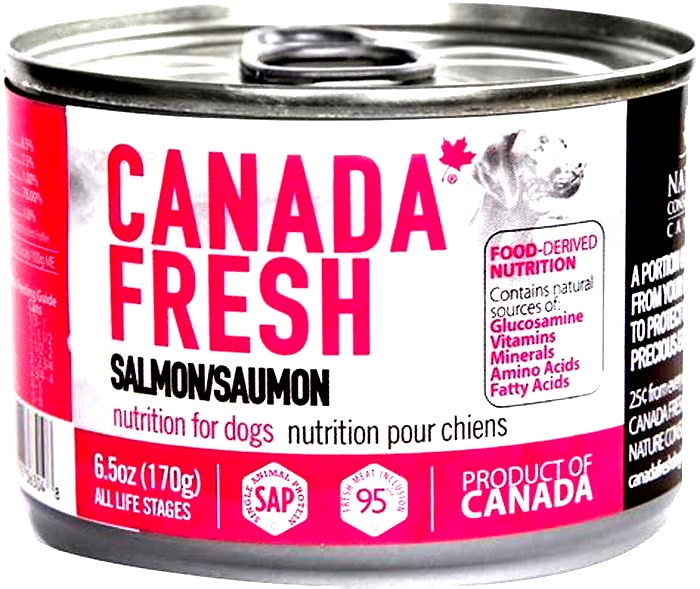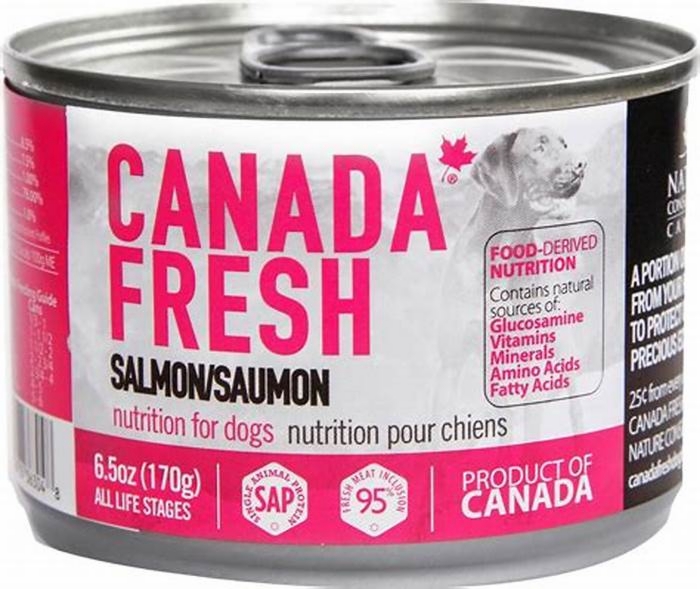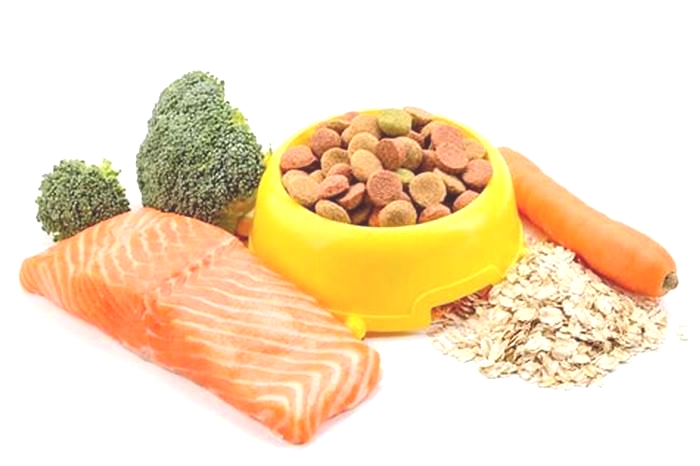can dogs eat salmon dog food everyday
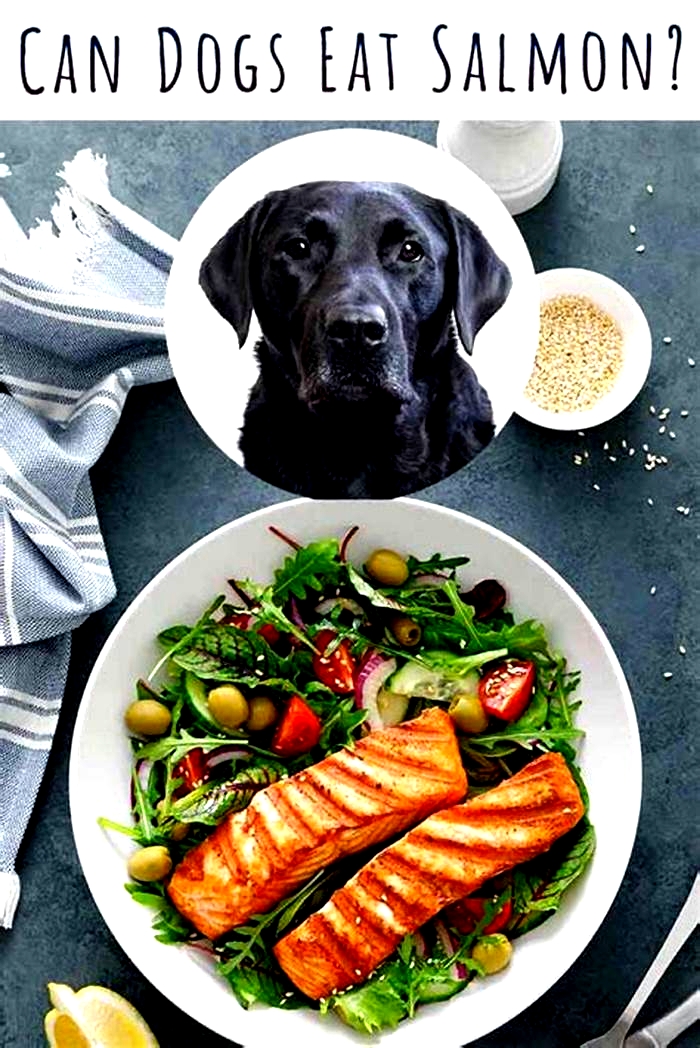
Can Dogs Eat Salmon?
NOTE: Always check with your veterinarian first before giving your dog any new foods, especially people foods. What might be OK for one dog might not be good for your dog, depending on multiple factors, such as their age, health history, health conditions, and diet. Dogs on prescription diets should not be fed any food or treats outside the diet.
Does your pooch have a penchant for fish? Many dogs like the taste and smell of seafood, but its important to understand the benefitsand possible risksanytime you consider adding a new ingredient to their diet.
Thankfully, when it comes to cooked salmon, your dog is safe. Salmon is a popular ingredient in many types of commercial dog food and is also OK for your dog to eat as a food topper or tasty treat. As with any new food, youll want to be careful not to feed your dog too much salmon to start, and be sure to watch out for any extra ingredients that might be included in typical human recipes (like butter or seasonings) that can be dangerous for dogs to eat.
Keep reading to find out how to safely prepare salmon for dogs, and when youll want to ask your vet for advice.
Is Salmon Good for Dogs?
Salmon can be a great addition to your dogs diet, and many high-quality dog food brands use salmon as a protein source. Unlike some seafood, such as tuna, the U.S. Food and Drug Administration (FDA) reportsthat salmon contains very low levels of mercury.
So, adding a little cooked, plain salmon to your dogs bowl can be a great way to give them an extra boost of flavor and nutrition. A few nutritional benefits of feeding your dog salmon include:
- Omega-3 fatty acids: Salmon is a great source of omega-3s, which are good for dogs skin and coat health, and can even improve mobility for dogs with joint issues or other inflammatory diseases.
- Protein: In addition to being an excellent source of healthy fats, salmon is also a good source of protein, which helps your pooch build and repair muscle tissue. There are many high-quality dog foods that use salmon as a main source of protein, which can be a great option for dogs who have allergies to other proteins like chicken, beef, or lamb.
- Vitamins and minerals: Salmon is also a good source of B vitamins. One important nutrient thats critical for keeping your dogs brain and nervous system healthy is vitamin B12, and salmon is rich in B12.
Just be sure to check with your vet before making any major changes to your dogs diet, especially if your dog has any health conditions or sensitivities.
Can Dogs Eat Salmon Raw?
Even with all the health benefits of salmon for dogs, pet parents should be cautious about feeding their pooch raw or undercooked salmon. Feeding your dog uncooked salmon can make them very sick. Raw and undercooked salmon can contain a parasite known to cause salmon poisoning disease, which can be fatal for dogs if left untreated. So sorry, sushi-sniffing hounds! Baked, broiled, grilled, and boiled fish are all much safer options for dogs to eat.
If your dog does get ahold of raw salmon or raw fish of any kind, give your vet a call so they can help you determine next steps.
Can Dogs Eat Salmon Skin?
If youve baked a nice salmon dinner but dont care much for the skin, its fine to share that leftover bite with your pooch. Salmon skin is safe for dogs to eat. Just be sure the fish has been thoroughly cooked and isnt seasoned with spices or ingredients that are toxic to dogs (like onions, butter, or garlic).
In fact, that scraping of salmon skin can be a great way to give Fido extra nutrients rather than throwing it into the compost if its not to your taste. Salmon skin actually contains even more of the healthy omega-3 fatty acids than the rest of the fish. So if youre not a fan of the skin, topping off Fidos food dish with a small amount of your leftovers can be a win-win for you both. Just remember to feed your dog salmon skin only in small amounts.
How to Safely Feed Salmon to Your Dog
Salmon is a safe snack for dogs, but that doesnt mean you should grill them an entire fish for dinner tonight! Giving salmon as a treat is a good place to start, and you can gradually increase amounts to let your dogs body adjust to the new food. This can help them avoid adverse effects like an upset stomach or diarrhea, which can happen when your dogs usual menu changes.
Any salmon given to your dog should be fresh, cooked, and free from bones, which pose a choking hazard. Avoid any seasonings or extra ingredients, as many common ingredients are not safe for dogs to consume.
Canned salmon is also OK for dogs to eat, but youll want to watch the sodium. While canned salmon in water is a better choice for dogs than salmon packed in oil, rinse it thoroughly to remove any excess salt or oil from the canning process before adding it to your dogs dish.
How Much Salmon Can Dogs Eat?
Feeding small amounts of fresh, cooked, boneless salmon as an occasional treat is considered safeand even healthyfor dogs. But as with any new food, start slow! Its always best to err on the side of caution when it comes to your dogs health.
Here are some general guidelines for how much salmon is safe for dogs to eat, based on their weight:
- Extra-small dog (220 pounds): 12 ounces of fresh, cooked, boneless salmon per week
- Small dog (2130 pounds): 23 ounces of fresh, cooked, boneless salmon per week
- Medium dogs (3150 pounds): 34 ounces of fresh, cooked, boneless salmon per week
- Large dogs (5190 pounds): 46 ounces of fresh, cooked, boneless salmon per week
- Extra-large dogs (over 90 pounds): 68 ounces of fresh, cooked, boneless salmon per week
Note that these are just general guidelines. Its always best to check with your vet before making major changes to your furry friends food bowl.And remember: Raw seafood can contain harmful bacteria and/or parasites that can cause illness in dogs.
Featured Image: iStock/O_Lypa
Can Dogs Eat Canned Salmon? Vet Reviewed Facts & Health Guide
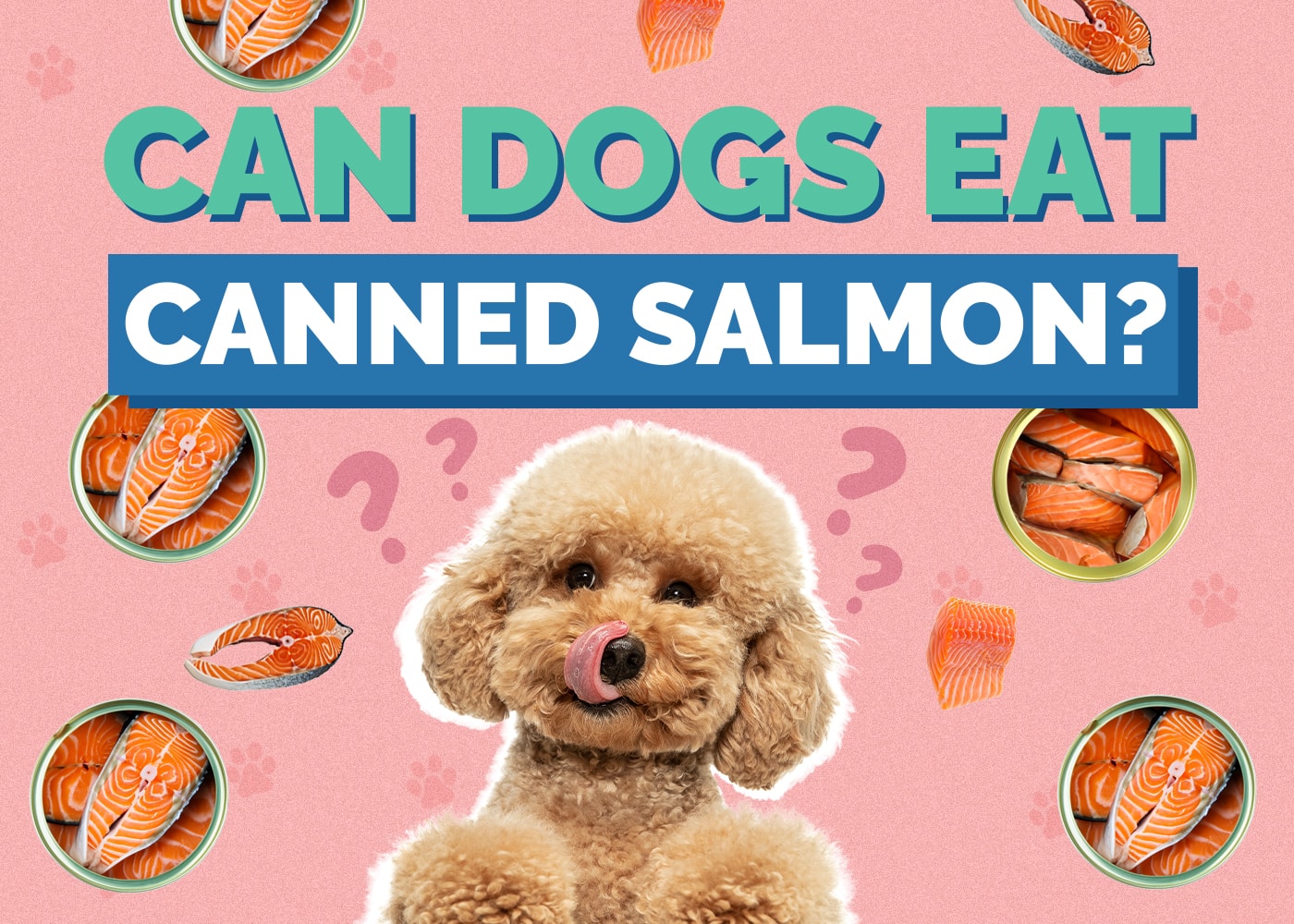
The information is current and up-to-date in accordance with the latest veterinarian research.
Learn moreHow much does your dog want some of that salmon that youve just opened? Judging from those puppy dog eyes, probably quite a bit! But the question is, should you give him some of your canned salmon?
Is canned salmon safe for your dog to eat? The short answer isyes! Canned salmon is considered a safe snack, but there are a few points to be aware of.
Canned Salmon and Your Dog
Salmon is a very healthy food for both humans and dogs.The health benefits of salmon have been well established, particularly due to its richness in omega-3 fatty acids and as an excellent source of protein, potassium, selenium, antioxidants, and B vitamins.
Canned salmon is considered just as healthy as fresh salmon, and in some cases, it might even contain more omega-3 fatty acids than fresh fish. It is recommended to avoid salmon packed in oil, though, as some of the omega-3 fatty acids are prone to exiting out of the fish and mingling with the packing oil. Since oil and water dont mix, salmon packed in water is more likely to retain those essential fats.
In addition, canned salmon contains bones that, through the canning process, have become quite soft and, therefore, very safe to eat. These bones provide an extra source of calcium, and your dog wont even notice them.
Some of the health benefits of salmon for dogs include:
- Extra source of protein, omega-3 fatty acids, and calcium
- Weight loss for overweight dogs
- Minimize and control food allergies
- Contains collagen, which can contribute to the skin and bone health of senior dogs
- Helps senior dogs with brain function
- The omega-3 fatty acids in salmon can contribute to healthy skin and coat
- Helps prevent cancer and slows down cancer growth
- Acts as an anti-inflammatory to support dogs with arthritis or inflammatory bowel disease
Since canned salmon is as healthy as fresh fish, these health benefits are still relevant for you and your dog. However, there are a few cautions that come with feeding your dog canned salmon.
The Downside for Dogs
The positives of canned salmon most definitely outweigh the negatives, but we still need to have a look at the challenges.
Oils
Canned salmon is available in both oil and water, but you should definitely avoid oil-packed salmon. As already discussed, much of the healthy omega-3 fats tend to drain out of the fish when packed in oil. Also, excess fat can cause gastrointestinal issues, such as vomiting and diarrhea, or can eventually develop into serious health problems such as pancreatitis.
Some of the signs of pancreatitis may include:
- Severe dehydration
- Stomach pain
- Loss of appetite
- Extreme lethargy
- Vomiting
- Collapse and shock on occasion
If your dog exhibits any of these symptoms, take him to the vet immediately.
High Salt Content
Canned salmon tends to be high in salt so you should opt for brands that are low in sodium. Too much salt can lead to excess sodium, which will produce extreme thirst and might eventually cause sodium ion poisoning and kidney damage.
Some of the symptoms to watch out for if your dog ingested too much salt include:
- Diarrhea and vomiting
- Fever
- Depression
- Tremors and seizures
If you observe your dog with any or all of these symptoms after eating canned salmon or any other salty food, take him to see your vet as soon as possible.
Allergies
Dogs are just as susceptible tofood allergies as people, and while fish allergies are rare, some dogs can develop allergies to fish.
These are some of the symptoms of an allergic reaction to look out for:
- Red and swollen skin
- Excessive licking and scratching
- Ear infections
- Diarrhea and vomiting
- Hot spots
- Excessive gas and stomach cramps
- Itchy skin and bald spots
If your dog has eaten his first canned salmon, keep an eye on him. If you notice any of these symptoms after a few hours, contact your vet.
Final Thoughts
Salmon is a healthy and safe food for your dog, and it can contribute to many health benefits. Canned salmon has many of the same health benefits as fresh cooked salmon and is much more cost-effective and easier to prepare. It also has the added bonus of soft salmon bones that are not only safe for your dog to eat but will provide him with extra calcium. Aim for salmon packed in water and youll have a fantastic alternative to fresh salmon for your dog.
Observe your dog after giving him his first helping of salmon to ensure he doesnt have any fish allergies. Be sure to have a discussion with your vet before adding anything new to your dogs diet to ensure its safe to do so. As long as you follow these directions, canned salmon is absolutely safe for your dog to chow down on and enjoy.
Related Reads:
Featured Image Credit: Natalia Wimberley, Shutterstock
Can Dogs Eat Salmon?

Can Dogs Eat Salmon?
Written by:Dr. Merliza Cabriles
Yes, you can give salmon to your dog provided that it is well-cooked and has been completely deboned. Raw salmon or any other fish or seafood is a total no-go for dogs, because of harmful bacteria and parasites. Salmon is also very high in essential nutrients for dogs. However, there are some important considerations that you should be well aware of before giving some to your pet.
Health benefits of salmon for dogs
The high-quality protein and omega-3 fatty acids in salmon provide various health benefits in dogs, which include the following:
- Brain health and function
- Help boost your dogs immune system
- Reduce inflammation of the joints
- Alleviate symptoms of arthritis
- Help maintain healthy skin and coat
- Helps with joint mobility
- Reduce skin irritations and allergies
- Salmon is also rich in vitamins A, B-complex, and vitamin D, as well as magnesium, potassium, and zinc.
Health risks of salmon for dogs
Harmful bacteria and/or parasites are a real concern when you feed it raw. Salmon can be filled with flukes, a type of parasite that can cause
- Vomiting,
- Diarrhea, and
- Even death in dogs!
In moderation, salmon can contribute to keeping your dog healthy, but make sure its well-cooked to kill all harmful parasites and bacteria which might be present.
Just in case your dog ate raw salmon by accident, dont panic. A small piece wont likely have adverse effects. Just be on the lookout for digestive upsets, vomiting or diarrhea.

Salmon poisoning disease (SPD) in dogs
This is a fatal condition that can occur when a dog eats raw salmon that contains the parasite,Neorickettsiahelminthoeca. Once the parasite reaches the dogs small intestine, it causes hemorrhaging and gradually invades the entire body.
Important symptoms that you should watch out for include:
- Vomiting
- Diarrhea
- Fever
- Eye and nose discharge
- Swollen lymph nodes
If you see any of these signs in your dog it is a good idea to call your veterinarian.
How about dogs and seafood allergies?
Salmon is actually good for dogs with allergies because they are rich in omega fatty acids that can also promote skin and coat health.
How about canned salmon and dogs?
You can give canned salmon to your dog but be sure to choose salmon in water and avoid those that contain brine or oil, because the salt and oil can be harmful to your dog. You dont have to remove the bones in canned salmon because these can usually be eaten. If you want to be on the safe side, however, you can remove those as well of course.
Can dogs eatsalmonskin?
Salmon skin is very high in fats, so you better remove it. If your dog ate some, there is no need to worry about it, but it is recommended to keep a close eye on your dog in case he suffers from digestive upsets.
Can dogs eat smoked salmon?
Never give smoked salmon to your dog because it is cured using ingredients, especially salt, that is harmful to your dog. Smoked salmon may also contain parasites which can cause a fatal condition in dogs.
Can puppies eat salmon?
Cooked or tinned salmon may be offered to puppies as an occasional treat.
Preparing salmon for your dog
Using virgin olive oil or vegetable oil when cooking salmon can further boost the nutritional benefits of the dish. Make sure that its well done; in fact, overcooking is better than raw when it comes to feeding salmon to dogs. It is also a good idea to remove the fish skin because it is very high in fats.
Asgarliccan be very harmful to dogsandonions are also a real threat to dogs, make sure not to use any of those substances when you prepare it at least for your dog!Dogs can eat tunaand sardines as well, which are also rich in omega-3 fatty acids.

Did we miss anything? Please help us improve and share your thoughts in the comments!

